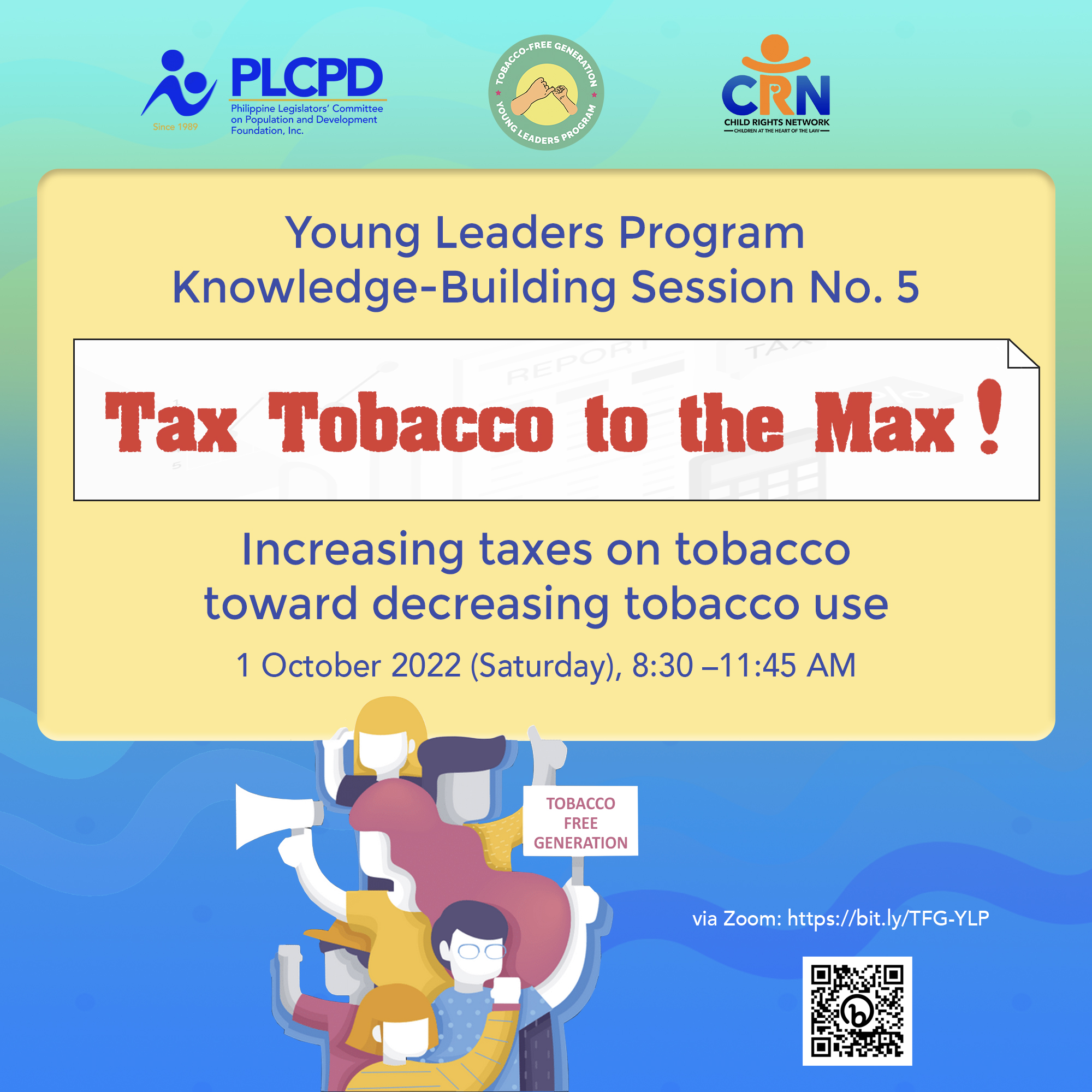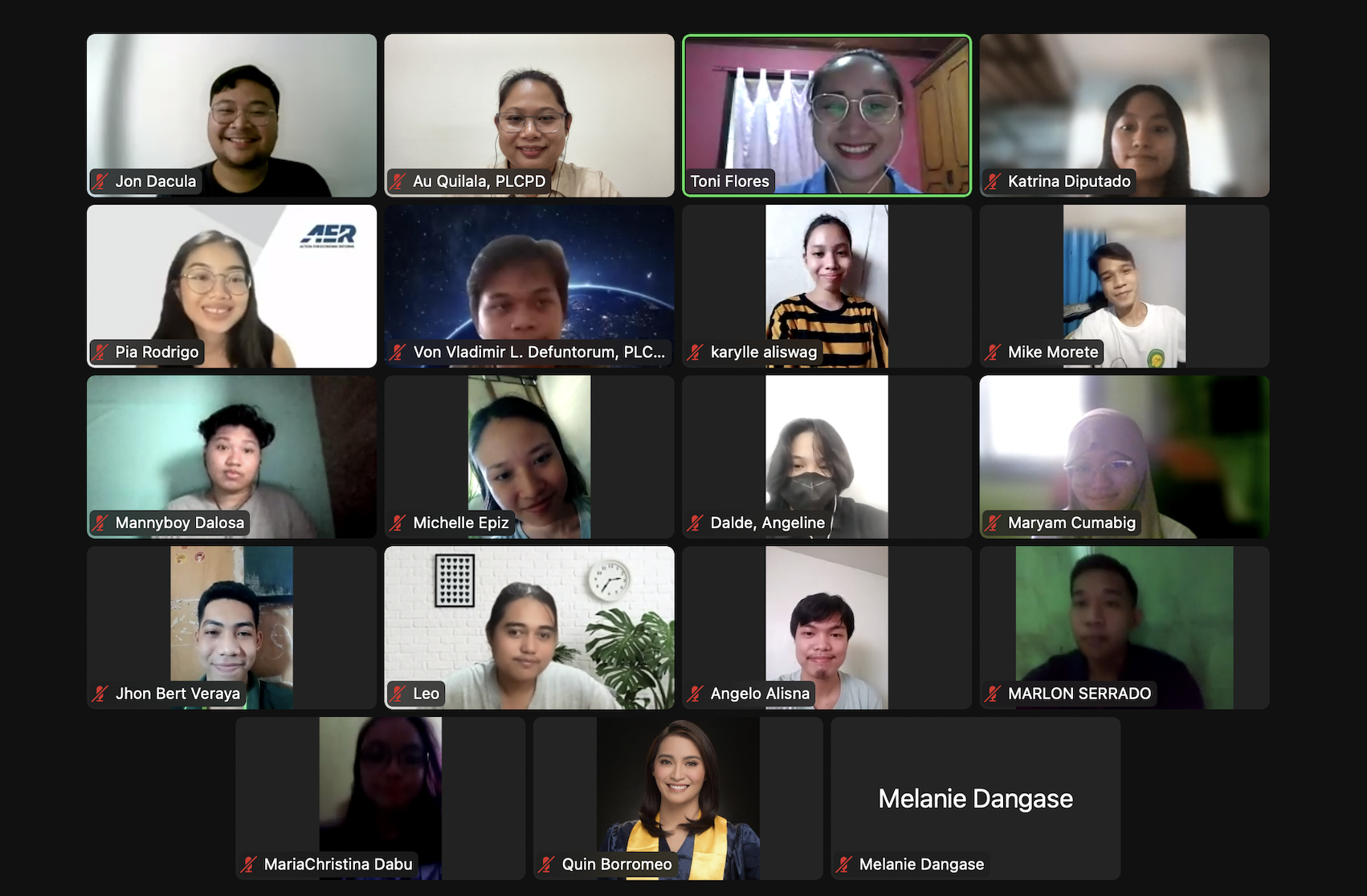Young Leaders’ Call to Action: Tax Tobacco to the Max!
More than 20 delegates of the Young Leaders Program (YLP) committed to pursue the advocacy for higher taxes on tobacco products during the knowledge-building session held on October 1, organized by the Philippine Legislators Committee on Population and Development (PLCPD) and the Child Rights Network (CRN)
The session tackled the concept of tobacco taxation as a form of tobacco control, and how it helps protect and promote public health as well as improve the welfare of the Filipino people. The group also discussed the challenges in championing tobacco control measures and what the young leaders should expect to do in advocating tobacco-free generation campaigns.
In her talk, Ms. Pia Rodrigo of the Action for Economic Reforms (AER) shared that increasing tobacco taxes and price is one of the most effective ways to reduce tobacco and save lives. Since the signing of the Philippines on the World Health Organization – Framework Control on Tobacco Convention (WHO-FCTC), the country has already passed several tobacco tax reform and other related laws. These are Republic Act (R.A.) 10351 or the Sin Tax Law, R.A. 10963 or the TRAIN Law, R.A. 11223 or the Universal Healthcare (UHC) Law, R.A. 11346 or the Tobacco, heated tobacco products (HTPs), and electronic nicotine delivery systems (ENDS) Tax Law, and R.A. 11467, which increased the tax on alcohol, ENDS, and HTPs. These laws increased taxes on traditional and novel tobacco products and allocated portion of the revenues to fund the development of the country’s healthcare system. At the same time, the intervention will help lessen the prevalence of smoking among Filipinos and exposure to secondhand smoke due to the increase in prices of these products. But according to Rodrigo, tobacco is still relatively affordable and there is still a funding gap for the implementation of the UHC Law. Aside from this, studies show that there will be 100,000+ new smokers due to increasing income and population.
“Kahit marami na tayong na-achieve [Even if we have achieved much], there is so much space to do more when it comes to sin taxes especially right now,” Pia said.
For advocates, championing tobacco-control policies and advocating tobacco control policies has not been easy. Jonero Dacula, a member of the Youth for Sin Tax coalition, said tobacco control advocacy, and the advocacy for sin tax in particular, was a mixture of hardship and the never-ending passion of young people. He shared that tobacco tax policies were not always the priority of Congress, and it would take extra effort and sometimes compromise before the calls of health advocates are heard when it comes to these campaigns. He shared that before the passage of R.A. 11346, their primary call was to increase taxes on tobacco up to Php90 per pack of cigarettes. However, legislators approved a bill that increased the tax to Php45 on the first year with a five-peso incremental increase per year for three years and 5% for the following years after that. Jonero said that there is a need to press on, because of unfinished business on tobacco control such as declaring the tobacco epidemic as a national health emergency, advocating for a smoke-free environments, tobacco-free schools campaign, and empowering and encouraging people to join the call.
Au Quilala, PLCPD Advocacy and Partnerships Manager, said that for the 19th Congress, tobacco control advocates should brace themselves because there is much more to be done to advocate for smoke-free environments, higher taxes on tobacco products, raising the age restriction for all tobacco products from 18 to 25, and stricter regulations on e-cigarettes and heated tobacco products.
For their part, Young Leaders commits to becoming part of the tobacco control advocacy in the Philippines. They said that it is high time to maximize the power of youth to lead with the coordination with the communities and other stakeholders about the dangers of tobacco and to spark conversations about their role in making the public smoke-free. According to them, the youth has the power can harness the potential of campaigning in social media, but they emphasized that this commitment should not be limited to social media only. They also encourage young leaders to engage and immerse with the community Lastly, they encouraged one another to not be antagonistic to people with different points of view and instead become more understanding and persistently encourage others to support the cause.


